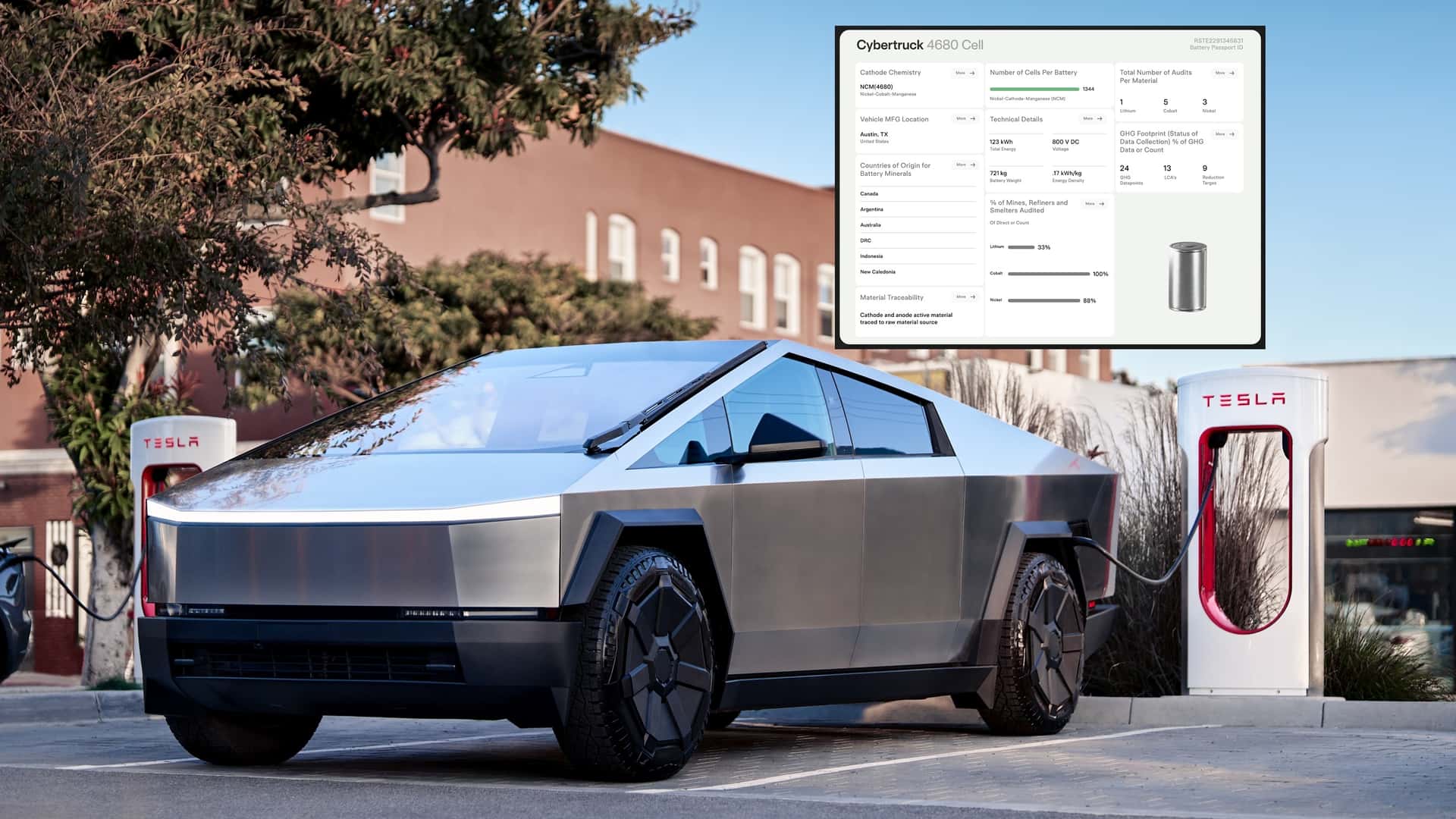
HERE'S WHAT THE TESLA CYBERTRUCK'S BATTERY PASSPORT REVEALS
Battery capacity, chemistry, the 4680 cell number and even energy density.
Over the years, Tesla has accustomed us to being rather silent about technical details related to its batteries. Even the battery capacity of particular EV models isn't shown on the company's website. But we found an interesting exception.
In the 2023 Impact Report on page 109, Tesla showed the Cybertruck's battery passport with neat details of the 4680-type cylindrical battery cells and the structural battery pack.
Some of the information directly confirms what we already know from other unofficial sources, including teardowns, while some data are new. All things deserve a small summary, as Tesla's in-house 4680 batteries will be the reference point for future generations of the new cell format. It will soon be produced by other suppliers and used by other carmakers.
Let's start with the chemistry. Tesla uses a Nickel-Cobalt-Manganese (NCM) lithium-ion cathode chemistry, as pointed out in The Limiting Factor's teardown in mid-2022.
There are 1,344 individual battery cells in one Tesla Cybertruck's battery, with a combined total energy of 123 kilowatt-hours. This allows us to calculate that an individual cell has 91.5 Wh of capacity.
The company shows also that the battery's weight is almost 1,600 lbs (721 kg). That's roughly 24% of the whole Cybertruck AWD version (6,603 lbs or nearly 3,000 kg).
Because the battery is a structural element of the vehicle, some of this weight is offset. Nonetheless, the battery pack is heavy. Its gravimetric energy density is 0.17 kWh/kg. That's not a bad result, but there seems to be room for improvement.
Tesla Cybertruck 4680 cell battery passport info:
- lithium-ion chemistry: Nickel-Cobalt-Manganese (NCM) cathode
- cell form factor: 4680-type cylindrical (a diameter of 46 mm and height of 80 mm)
- number of cells per pack: 1,344 cells
- pack capacity: 123 kWh
- cell capacity: about 91.5 Wh
- system voltage: 800 volt (class)
- battery weight: 1,589.5 lbs (721 kg)
- energy density: about 0.17 kWh/kg (170 Wh/kg)
- estimated driving range: 340 miles (AWD version), 320 miles (Cyberbeast)
Later this year, the Tesla Cybertruck AWD and Cyberbeast versions will offer a range extender option. With an estimated increase in range of about 38% (respectively 470+ and 440+ miles), the additional capacity will be around 47 kWh, for a total of about 170 kWh.
In 2025, Tesla also intends to launch an entry-level RWD version with a smaller battery and shorter range of roughly 250 miles.
We are eager to see what happens next with the 4680-type cells. The Tesla Cybertruck's battery cells are already about 10% more energy-dense than the initial ones used in one of the Tesla Model Y versions, specifically the Model Y AWD from Texas, which was retired in 2023. As with any new cell format, there is substantial potential for improvement before the technology matures.
Tesla's 4680-type cylindrical battery cell
See also
2024-07-01T15:24:31Z dg43tfdfdgfd